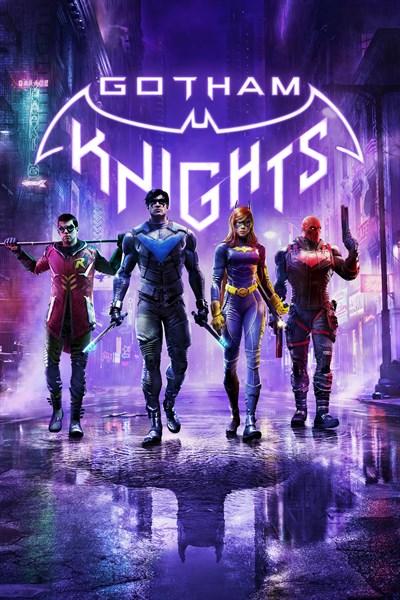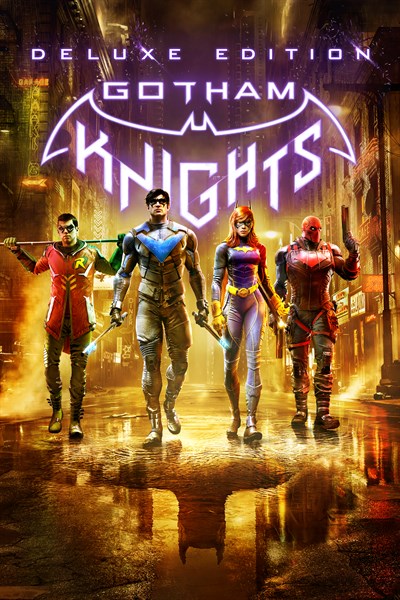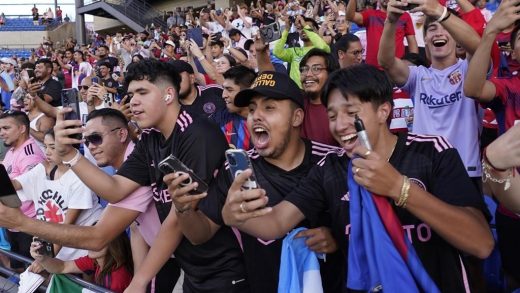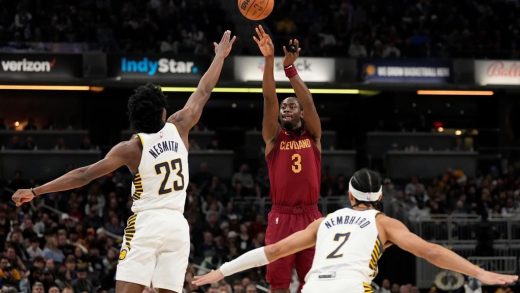
The conversation in the meeting room had shifted to a handful of names written on a whiteboard, some underlined for emphasis.
As part of our exploration around a different kind of game set in Gotham City, our team at Warner Bros. Games Montréal had spent weeks talking about the superhero fantasy — the kind that tends to dominate in DC’s Batman Universe — and what aspects of that we could bring to life for the first time. Over several sessions, the group of veteran developers from game design, narrative, animation, art, and other disciplines began finding their focus in two main aspects of that fantasy: The evolution from street-level crimefighter to legendary superhero, and the superhero team-up.

On the first topic, we could draw on some eight decades of DC comics publication history to see just how comic characters grow. Dick Grayson’s version of Robin had parted company with Batman at college age and gone on to lead the Titans and eventually adopt a completely new (non-sidekick) identity as Nightwing. Barbara Gordon had started her Batgirl career as the rebellious teen daughter of Commissioner Jim Gordon, then adapted to a life-altering injury by developing a new approach to crimefighting as Oracle. Reinvention and growth are staples of the genre, but also a natural reflection of how players engage with games. They want to start as awesome, aspirational heroes, but they also want to know they can get better. To set goals for themselves and discover new ways to reach those goals.
On the second point, we could see time and again how the superhero fantasy was amplified when two (or more) heroes joined forces to finally bring down the arch-villain. And for a number of us, this echoed experiences on other games where co-op play and social connection became a driving force. Players love narrative, but some players love narrative even more when they can experience it with their friends by their side. Players enjoy taking on a challenging encounter, but for some that enjoyment deepens as communication and coordinated action between teammates opens up new choices.

We stared at the names on the board. Someone would occasionally jot down a signature move and draw a line to one of the heroes, offering an early glimpse into how a particular character might flavor combat, stealth or movement. We talked about how the heroes were different from each other, and how they could become more different.
We were excited about bringing to life a roster of playable heroes in a way that celebrated their potential both as future versions of themselves, but also as teammates. We knew that if we could cast the right combination of heroes, we’d deliver tantalizing asymmetry and unique gameplay opportunities for players with a broad range of playstyles.
We could give them heroes they could become invested in.

Nightwing, Batgirl, Red Hood, and Robin were largely defined by their proximity to and working relationship with the Dark Knight himself. There are all graduates — as our Game Director Geoff Ellenor put it — of the “Batman school of crimefighting,” but throughout their stories, they experienced their greatest growth when forced to step out of the shadow of their famous mentor. Where Batman is a fully-realized and hypercompetent paragon of expertise, preparation, and unshakable conviction, this younger generation of Batman-adjacent heroes had plenty of room to grow, plenty of challenges and limitations to overcome.
These heroes, though characteristically gritty at times given Gotham City’s darkness, also had room to mature. They could be reckless, petulant, naïve, self-absorbed or arrogant occasionally because that’s how real people are. But crucially, they could grow beyond that youthful immaturity, when they needed to. If they were forced to face the major life events that come with super-hero adulthood, they could become better people and better heroes.

And as we continued talking on into the day, it became clear that to give our upstart heroes — and the players — the room they needed to evolve and express their differing styles and abilities, to become the bigger symbols Gotham City needed, we would have to take away the certainty in their world. We’d have to remove the support structure that had always been there. We would need to force them to face the challenges and threats that they’d been insulated from up until now.
So, we decided to create a world without Batman.

We did it to upset the status quo of Gotham’s criminal ecosystem and remove the checks on its excesses, thus setting up the story of Gotham Knights. But also, to impose the kind of pressures our heroes (notably the ones the player chooses to play) needed to spur them on to grow.
Gotham Knights is available now on Xbox Series X|S. We hope you enjoy!

Gotham Knights
Warner Bros. Games
273
From solving mysteries that connect the darkest chapters in the city’s history to defeating notorious villains in epic confrontations.
Gotham Knights is an open-world, action RPG set in the most dynamic and interactive Gotham City yet. Patrol Gotham’s five distinct boroughs in solo or in co-op and drop in on criminal activity wherever you find it.
Your legacy begins now. Step into the Knight.

Gotham Knights: Deluxe
Warner Bros. Games
785
Visionary Pack Includes:
– Exclusive ‘’Knightwatch by Jim Lee’’ Transmog
– Beyond Suitstyle, inspired by Batman Beyond universe
– Salvage to build new Gear
– Boosted Gear
– Exclusive Emote
– 3 Exclusive Suit Colorways
• Ultra Zur-En-Arrh
• Chroma Frost
• Tribute Asylum
Batman is dead. A new expansive, criminal underworld has swept the streets of Gotham City. It is now up to the Batman Family – Batgirl, Nightwing, Red Hood, and Robin – to protect Gotham, bring hope to its citizens, discipline to its cops, and fear to its criminals. Gotham Knights is an open-world, action RPG set in the most dynamic and interactive Gotham City yet. Patrol Gotham’s five distinct boroughs in solo or in co-op and drop in on criminal activity wherever you find it.
Your legacy begins now. Step into the Knight.




